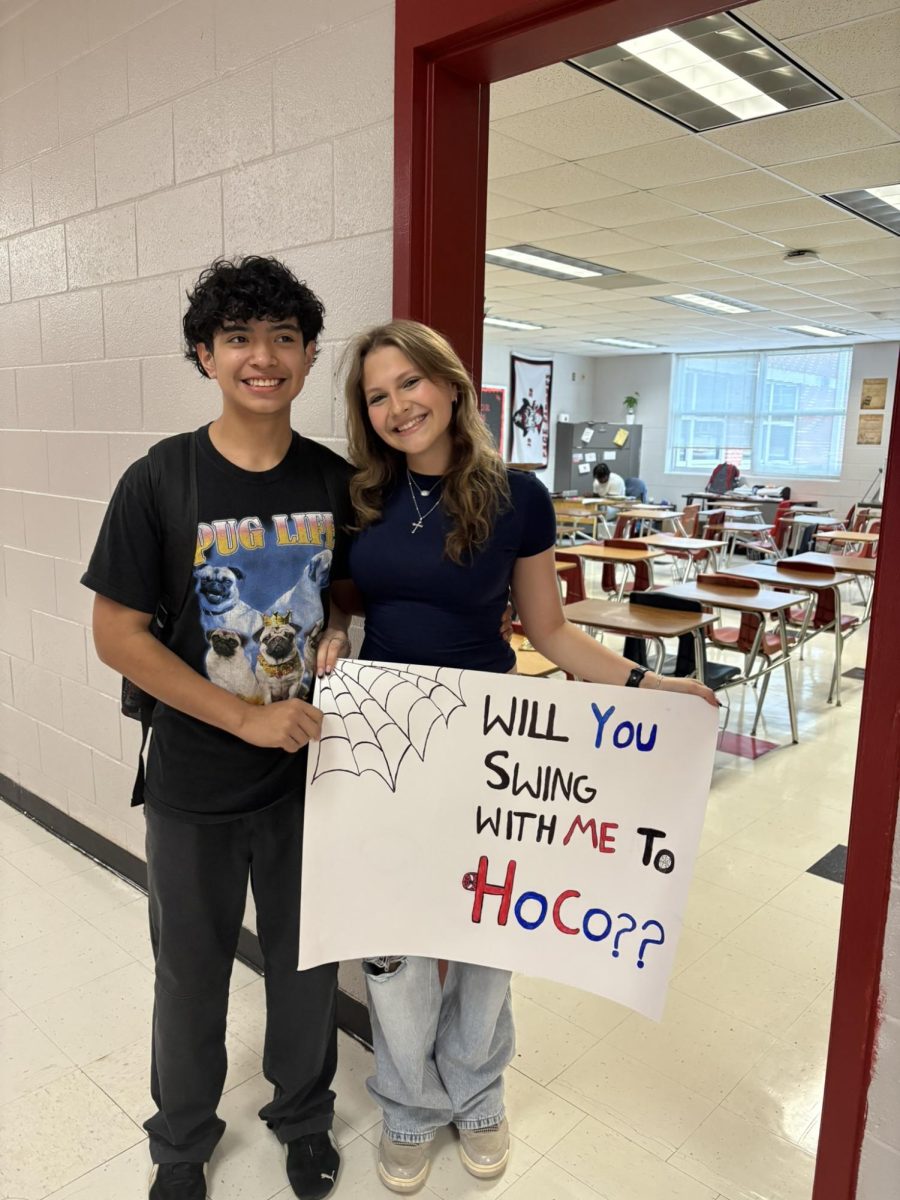The concept of betting money to win more money has always been an appealing topic to the masses. You win one thousand dollars and suddenly you’re betting the entirety of it to win more. However this comes with a risk—there is always the possibility that your money will be lost. Though this is scary to some, it’s thrilling for others. The idea of betting it all and hoping that you’re right calls for both hope and putting it in the hands of fate. Gambling has been a long standing hobby for adults, but recently it has made its rounds and has reached high schoolers. Teenagers have become obsessed with the notion of gaining “free” money, despite the potential consequences. The practice of gambling can now be seen throughout many high schools as students are glued to their phones with the hopes of their “bet hitting”. You see it more frequently within males more than females, but it has still become more and more common.
Gambling has evolved incredibly over the years. Its more accessible than ever before. It used to be that you would have to go to your nearest casino to get a taste of the action. However now, with the world’s new technology, gambling is now available on your phones, laptops, ipads, etc. This has been a major part of the increase in participants, especially within teenagers.
Most parents and teachers have become angered with this new institution in their children’s lives. But how did it get to this point? What sparked this new interest and obsession?
Gambling has reached students through a mix of social influence, digital accessibility, and cultural trends. Online sports betting apps and gambling platforms have made it easy for teenagers to participate, often without age verification. Many students are introduced to gambling through social media, where influencers and online communities share their big wins, making it seem easy and alluring. Peer pressure also plays a role, as students encourage each other to place bets, which often starts with small amounts but later turns into betting larger sums. Additionally, the rise of fantasy sports and online casino games has made gambling feel like a casual, everyday activity. Some even see it as a way to make quick money, especially when facing financial conflicts. Without proper regulation or parental supervision, many students develop risky gambling habits, leading to financial losses, stress, and even addiction.
With this new widespread addiction, students are facing the harsh realities of gambling. What may start as a harmless bet on a football game or a few dollars on an online app can quickly turn into something uncontrollable. The rush of winning excites teenagers, making them think that they should keep going. While losses push them to chase what they’ve just lost, often leading to reckless and dangerous behavior.
The cycle of gambling can create an overwhelming sense of greed, as the desire to win more outweighs the fear of losing. Teenagers, still developing their sense of responsibility and financial cultivation, often fail to recognize when they’ve crossed a line. Some even resort to borrowing money from friends or using family money without permission, leading to tension and problems in their personal lives.
As gambling has become a priority, students have started skipping homework, losing focus in class, and even missing school altogether. The social aspect has also changed, as friendships are shifting towards those who share the same obsession, and arguments over lost bets are damaging relationships. Additionally, students that are secretive about their gambling addiction, become withdrawn and dishonest with their parents and teachers.
Social media platforms play a huge role in this rise. Influencers and sports analysts often showcase their participation in gambling and make it seem easy. Teenagers are especially susceptible to this, believing that they, too, can make money just as easily. Betting apps and online platforms continue to push advertisements, making gambling feel like an everyday, normalized activity as it becomes more common.
Many schools and parents are now realizing the severity of the issue and are looking for ways to teach students on the dangers of gambling. Some schools have even begun implementing stricter phone policies to limit students from engaging in betting during school hours. However, addressing the root of the problem requires conversations at home, teaching financial responsibility, and enforcing stricter regulations on betting platforms that target underage users.
While gambling may seem like an easy way to make money, the risks often outweigh the rewards—especially for teenagers who are still learning the value of financial responsibility. What starts as a harmless game can quickly turn into a dangerous habit, especially for more vulnerable teenagers as it leads to losing money, friends and increased academic struggles. The growing trend of student gambling calls for awareness and intervention, outside the home and within the home, before it becomes an irreversible problem.
















